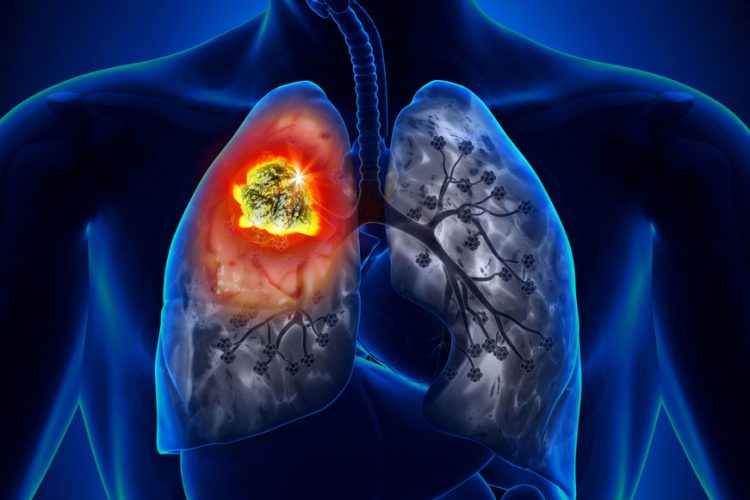New Technology Detects Early-Stage Lung Cancer

According to recent research published in the Journal of Molecular Diagnostics, outcomes of patients with non-small-cell lung carcinoma (NSCLC) may be improved due to novel technology that is inexpensive and capable of high-throughput testing.
The new technology consists of an electric field-induced release and measurement (EFIRM) that can detect non-small-cell lung carcinoma (NSCLC) during the early stages when surgical interventions are possible. This is especially crucial since most NSCLC cases go undiagnosed until the advanced stages were interventions are challenging and fatality is high.
The highly sensitive and specific EFIRM technology will aim at detecting two epidermal growth factor receptor (EGFR) mutations that are implicated with lung cancer in the blood of NSCLC patients who have been diagnosed with the early stage of the disease. Additionally, the technology can monitor treatment and detect the recurrence in patients previously diagnosed with NSCLC.
Even though chemotherapy has improved, the survival rate for NSCLC patients is relatively poor due to the timing of the diagnosis.
"The revolutionary EFIRM technology is the most exciting development in the noninvasive liquid biopsy in recent years. The potential to detect early-stage lung cancer patients with an affordable blood or saliva test could save thousands to tens of thousands of lives annually worldwide," explains Charles M. Strom, MD, PhD, co-director of the Center for Oral/Head and Neck Oncology Research at the UCLA School of Dentistry.
Using EFIRM technology in early studies, patients had successfully measured two EGFR mutations derived from blood samples of patients with the late-stage NSCLC. During the present studies, the researchers investigated whether these mutations can be present in samples from patients with early-stage disease. "Currently, the clinical sensitivity of EFIRM to detect patients with NSCLC is limited by the percentage of tumors containing either or both of the two variants, which is estimated at 27 percent of NSCLC tumors," said co-investigator Wu-Chou Su, MD, of the Department of Internal Medicine, National Cheng Kung University Hospital and College of Medicine of the National Cheng Kung University, Tainan, Taiwan. "We are presently developing a 10-variant panel that contains detecting mutations expressed in 50 percent of all lung malignancies."
The researchers assure that the study does not provide evidence that the detection of EGFR mutations in the plasma of an individual is actually predictive that the patient has NSCLC. However, protective research may choose to explore the implications of EGFR mutations in lung cancer. As of now, EFIRM technology is useful for guiding treatment selection in patients where their biopsy material isn’t there. "We are gratified by the performance of the EFIRM platform in patients whose tumors were still small enough to qualify for surgical care. Work is underway to increase the number of mutations analyzed and to automate the process to increase sensitivity and facilitate mass screening," states Dr. Strom.
Source: ScienceDaily








